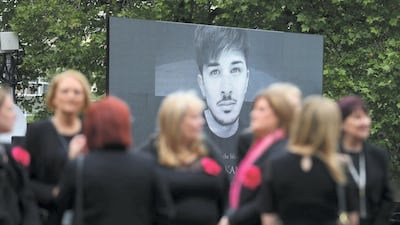The UK government plans to make some 650,000 businesses legally responsible for protecting the public from terrorism, but the new law has been delayed due to the Covid-19 pandemic.
The new law would apply to businesses from major venues to shops that employ just a few dozen people, a public inquiry into the 2017 suicide bombing at a pop concert in Manchester was told.
Venue owners do not currently have to act on advice from specialist counter-terrorism officers and a senior counter-terrorism officers said that the new law would prove “transformational” for the protection of the public.
The government first announced proposals in February but a senior official gave further details this week at the inquiry, which has heard of apparent failures by police and security staff to confront the suicide bomber Salman Abedi.
Witnesses have reported telling police and security staff of their suspicions after seeing Abedi carrying a large rucksack into the venue before blowing himself up at the conclusion of a concert by US pop star Ariana Grande.
The law builds on a campaign by Figen Murray, the mother of Martyn Hett who was one of the 22 people killed in the May 2017 bombing, who is pushing for public places to be more responsible for public safety.
She has told the inquiry that it is absurd that there is a law about the number of toilets a business must have but does not impose responsibility for protection against terrorism.
Shaun Hipgrave, from the government’s Office for Security and Counter Terrorism, told the inquiry that the government had not yet decided if breaking security guidelines at “publicly accessible” places would be a criminal offence.
He told the inquiry the law was intended to make someone accountable for the protection of a person whether they walked down the street, went to the shops, cinema or dropped children off at a nursery.
The hearing heard that there were only about 200 security advisers helping 650,000 businesses at the time of blast.
Lucy D'Orsi, a senior counter-terrorism police officer, told the inquiry there was a problem with the voluntary system that could only be resolved with a new law.
“I think some of the gaps are that decision-making can be commercially driven in the private sector and I firmly believe that a protect duty would be transformational for the UK,” she said.

